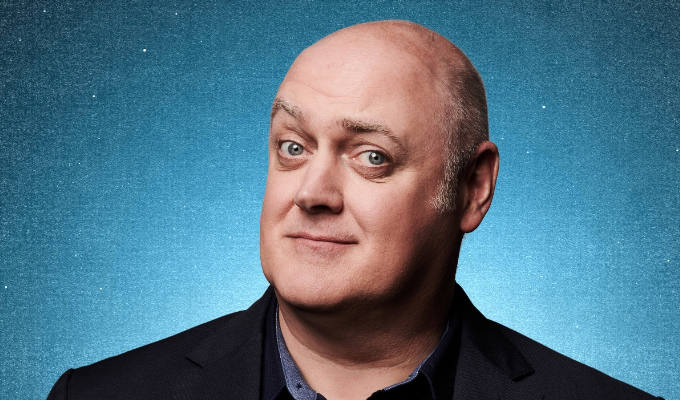Critical situation
Jorik Mol wants reviewers and comics to get along...
Once, at an especially boring family birthday party I was asked what I wanted to be when I grew up. Me, ten years old and annoyed because a) I wasn't allowed any crisps yet and b) it wasn't even my birthday, or I'd have been in the centre of attention and closer to some semblance of happiness; I responded angrily: 'Oh I don't know! Critic?' That got a laugh.
A very good laugh indeed, actually. The dead foetus comedian inside me that would continue to haunt me to this day stirred pleasantly in my flanks.
It is interesting that such a word 'critic' should have such strong emotional connotations for so many people, in so many ways – and none of them positive. Everyone's got it in for the critic. A critic should be feared and reviled, mocked and bitched about, admired and spat upon.
Neil Young didn't like critics one bit. 'You're all just pissing in the wind, you don't know it, but you are”. Strong point there, Neil, hard to argue with, certainly with only these wee-stained socks as a counter-argument. The thing is, I love Neil Young, but these critics are people who care about their craft as much as he did. They must have been right about some things. He does have a stupid whiney voice for instance (and I love Neil Young!).
Rappers share a tendency to deal with their detractors quite badly. Nicki Minaj, for instance, sings 'I am your leader, yes I am your leader, if you're not a believer: suck a big dick.' Charming.
Comedians and actors, a world of egos I know from within, having been in a theatre troupe in my home country (the Netherlands) and then slowly trying to make my way as a stand-up in the UK, I found an unhealthy amount of bitchiness being raised in the direction of critics. Usually in a very childish manner.
For some reason, this bullying is allowed, with a Glee-esque frizzle of the neck and the dropping of some serious blow-hard on the haters. Lots of shit, bucketloads of the stuff, is shot in the direction of critics each fringe by actors, directors, producers and certainly comedians.
These people – who tend to be (open spots obviously excluded from this) reasonable adults, suddenly feel the need to pick on anyone who writes a word in their direction as if they were a poisonous tse-tse fly. Critics are against Art, they say.
Yes, there is, much as there is in academia, a whole lot of childishness, feuding, plagiarism, anger, fistfights and hot sex that goes on in the discourse of critics and writer-performers on the fringe. And, due not least to a mass of alcohol being consumed daily by both groups, they take each other both way too seriously and not seriously enough.
Virginia Woolf, for instance, could dish the dirt like nobody's business, but was absolutely despondent at even the feeblest criticism - sometimes even for months on end - which she insisted on reading. But why is this odd?
A lot of comedy, if not all, is made by people who really fucking care about what they do. So much so that it warranted that particular expletive. It's a very personal form of performance art. The fringe is a back-breaking business, with huge debts being made in chasing a dream that has most likely gone with the wind never to return to your doorstep.
If we're working on averages here, most shows will make massive losses. The average audience was said to be six in 2009. It can only have decreased with the continuing increase of shows and punters preferring big names. So if the Fringe is not about making a profit, then what is it about?
What I propose is simple, yet revolutionary. I am proposing for performers to engage in a debate with critics who - like them, care about what they do. They have experience as writers and in many cases know what it's like to perform in shows or put them on with the great emotional and financial strain inherent at the Edinburgh Fringe.
To have an open and sincere discourse between writer-performer and critic. This means that defences should never be petty: 'Oh no, but it was a Thursday and the crowd were shite and my nan was in' or vice versa: 'I couldn't cope with more George Osborne jokes, I was weak! Weak! Weak as a moth caught in a curtain ring!' So no playing defence. No residual anger. Just a positive environment, whether online or off, where critic and performer get together.
In the end, comics, critics, mothers, we're all dickbags with opinions. We know this. But if we work together, we can find a purpose for the Edinburgh fringe festival that is about merit, artistic growth and finding joy in learning the craft of comedy to the best of our abilities.
I believe that bringing the critics and performers closer together will create a far better atmosphere on the Fringe. Because when together, they can get down to some real serious bitching. Because audiences, dear reader, really don't know Jack.
- Jorik Mol will be doing open spots at this year's Edinburgh Fringe Festival; blogs at jorikmol.blogspot.com and writes and makes podcasts for Fringe Review.
Published: 20 Jul 2012






